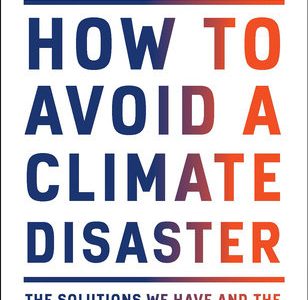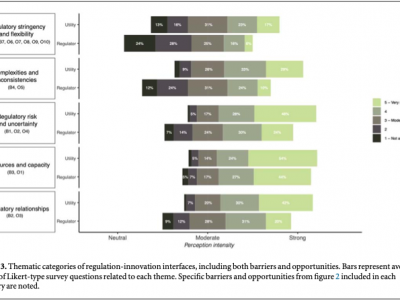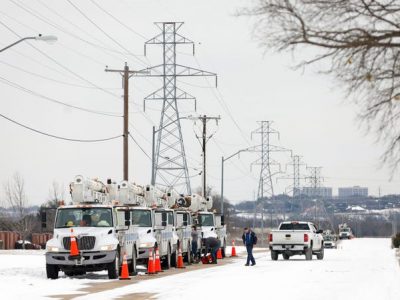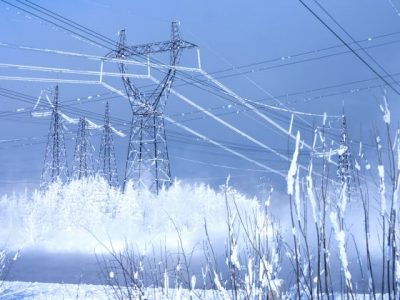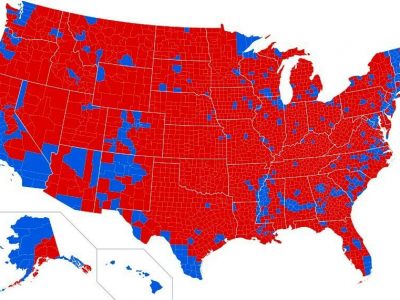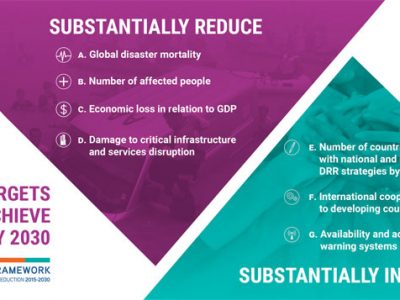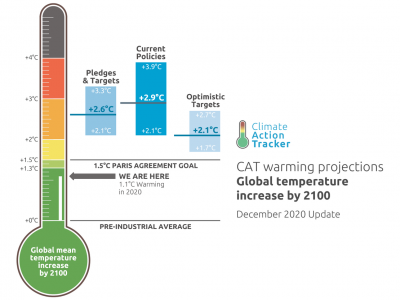Climate Adaptation
Gates on Climate
A guide to updating the global operating system.
The original Microsoft operating system was called QDOS, for Quick and Dirty Operating System. Bill Gates’s new book might well have been called “A Quick and Dirty Guide to Climate Policy.” The book, How to Avoid a Climate Disaster, provides a concise overview of climate policy, detailing the threat of the climate crisis and a …
Continue reading “Gates on Climate”
CONTINUE READINGBiden’s Infrastructure Plan: FAQs
Yes, it’s a big deal. And yes, it’s politically dicey.
Biden has announced a $2 trillion infrastructure plan, with a heavy focus on climate-related investments. The plan is very complicated, and the news coverage hasn’t been all that helpful. Here are the key questions we should be asking about the plan, along with my best attempts to answer. Q: What’s in the plan? A: It’s …
Continue reading “Biden’s Infrastructure Plan: FAQs”
CONTINUE READINGDo regulators and utility managers have irreconcilable differences or mutual goals?
By Alida Cantor, Luke Sherman, Anita Milman, and Mike Kiparsky
Do regulators and utility managers have irreconcilable differences or mutual goals? By Alida Cantor, Luke Sherman, Anita Milman, and Mike Kiparsky. What do climate change, aging infrastructure, and urban population growth have in common? They all pose major challenges – especially for water infrastructure in the United States. And many utilities are having a …
CONTINUE READINGThe Kolbert Report
Elizabeth Kolbert’s new book asks what it means to protect nature in the Anthropocene.
Elizabeth Kolbert’s new book, Under a White Sky, opens with the story of the battle to keep invasive Asian carp out of the Great Lakes. The problem exists because of two earlier interventions with nature. A century ago, we reversed the flow of the Chicago river to keep the city’s pollutants out of Lake Michigan …
Continue reading “The Kolbert Report”
CONTINUE READINGHow Much Should Texas Invest in Grid Resilience?
The Texas blackouts provide a case study in how to think through resilience issues.
As we begin to think through the long-term response to the Texas blackout, there’s a lot we don’t yet know. The ultimate issues are how much resilience we need against events like this and how we should obtain it. It’s helpful to lay out the kinds of questions we need to be asking as we …
Continue reading “How Much Should Texas Invest in Grid Resilience?”
CONTINUE READINGThe Big Chill
What went wrong in Texas and what can we learn from it?
The rolling blackouts in Texas were national news. Texas calls itself the energy capital of the United States, yet it couldn’t keep the lights on. Conservatives were quick to blame reliance on wind power, just as they did last summer when California faced power interruptions due to a heat wave. What really happened? It’s true …
Continue reading “The Big Chill”
CONTINUE READINGClimate Politics and the Urban-Rural Split
How do we sell climate policies to huge swathes of Trump country?
The 2020 elections revealed America as bitterly divided as ever. The split between rural and urban voters is intensifying, with rural voters delivering massive support to Trump and down ticket Republicans. Success in decarbonizing the economy will ultimately require the support of those voters. Short of a miraculous turnaround in attitudes about climate change, how …
Continue reading “Climate Politics and the Urban-Rural Split”
CONTINUE READINGThe Year Ahead
Nine key developments to watch for on the environmental front.
2020 was a tumultuous year. Hopefully, 2021 will be balmier. Widespread use of vaccines will hopefully tame the COVID-19 pandemic, and maybe the political world will settle down a bit too. Here are nine key things to watch for in terms of environmental policy. The Georgia runoff elections. Currently, the Republicans look likely to control …
Continue reading “The Year Ahead”
CONTINUE READINGThe Global Convergence of Disaster Law and Climate Law
Two very distinct areas of international law are finding more and more in common.
International climate negotiations may seem to have little to do with the work of such international relief organizations as the Red Cross. On the national level, EPA and FEMA are two very different agencies that historically have had little connection. The same has been true at the international level. But disaster and climate authorities are …
Continue reading “The Global Convergence of Disaster Law and Climate Law”
CONTINUE READINGIs the Paris Agreement’s Ambitious 1.5°C within Striking Distance?
A new analysis highlights the dangerous seduction of long-term targets
A new briefing (and PDF) from Climate Action Tracker opens with, “The recent wave of net zero targets has put the Paris Agreement’s 1.5°C within striking distance.” Big, if true. But is it? In the 2015 Paris Agreement on climate change, countries agreed to keep global warming within 2°C and to “pursu[e] efforts” to keep …
Continue reading “Is the Paris Agreement’s Ambitious 1.5°C within Striking Distance?”
CONTINUE READING



